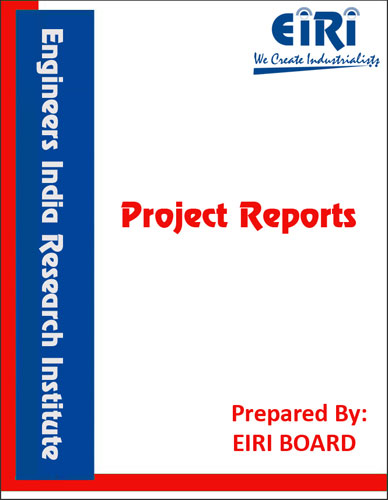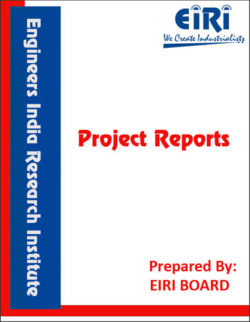RICE BRAN OIL CAP: 300 TPD RICE BRAN PROCESSING (SOLVENT EXTRACTION PLANT)
The project report includes Present Market Position and Expected Future Demand, Market Size, Statistics, Trends, SWOT Analysis and Forecasts. Report provides a comprehensive analysis from industry covering detailed reporting and evaluates the position of the industry by providing insights to the SWOT analysis of the industry.
We can prepare PROJECT REPORT as per your INVESTMENT PLAN for BANK LOAN REQUIREMENT and INDUSTRY ANALYSIS. All reports are prepared by highly qualified consultants and verified by a panel of experts.
Have Query? Click Here to Chat
Industry Expert is Online, Chat with him for more detail.

The structure of the rice kernel is illustrated in Fig.1. The bran fraction, which includes the germ or embryo in most commercial milling operations, represents only about 8% of paddy weight but contains about three-fourths of the total oil. Containing about 15-20% oil (the same general range of soybeans), rice bran is commercially feasible for oil extraction.
The typical composition of crude rice bran oil is 81.3-84.3% triglycerides, 2-3% diglycerides, 5-6% monoglycerides, 2-3% free fatty acids, 0.3% waxes, 0.8% glycolipids, 1.6% phospholipids, 4% unsaponifiables. In comparison with other vegetable oils, crude rice bran oil tends to contain higher levels of non-triglyceride components, most of which are removed during further refining processes. The free fatty acids, monoglycerides and diglycerides in rice bran oil are associated with enzymatic hydrolysis. The phospholispids predominantly include phosphatidylcholine, phosphatidylethanaolamine, and phosphatidylinositol. The wax content of rice bran oil can be somewhat variable, depending upon cultivar and processing parameters. Various sterols constitute the principal portion of the unsaponifiable fraction of nutraceutical interest. In recent years, many studies have been conducted in the area of utilization of these minor components as co-products of rice bran oil processing.
Oleic and linoleic fatty acids constitute more than 80% of the fatty acids of the glycerides. Rice bran oil is similar to peanut oil in fatty acid composition with a saturation level that is slightly higher than that of conventional soybean oil. The much lower linolenic acid content of rice bran oil makes it more stable to oxidation than soy oil.
The quality characteristics of properly refined rice bran oil include a maximum free fatty acid levels (as oleic acid) of 0.1%, a maximum peroxide value of 1.0 meq/kg, 0.05% moisture, an iodine value of 99–108, saponification value of 180-195, and a Lovibond color value of 3.5R. Appearance of rice bran oil ranges from cloudy to clear depending on the degree of dewaxing and winterization processes applied.
INTRODUCTION
USES AND SCOPE
MARKET POSITION
GLOBAL MARKET OF RICE BRAN OIL
DETAILED EXPORT DATA OF RICE BRAN OIL
LIST OF FEW RICE BRAN OIL PRODUCERS IN THE COUNTRY
PRESENT GOVERNMENT POLICY
MODIFIED TECHNIQUE WITH MANUFACTURING PROCESS FOR RICE BRAN OIL
B.I.S. SPECIFICATION FOR RICE BRAN OIL
REQUIREMENTS FOR RICE BEAN OIL (CLAUSE 4.6 AND 8.1)
DETERMINATION OF COLOUR OF SOAP
B.I.S. SPECIFICATION
SAMPLING AND CRITERIA FOR CONFORMITY OF SOLVENT EXTRACTED
RICE BRAN AS LIVESTOCK FEED
THEORY OF SOLVENT EXTRACTION
CHARACTERISTICS OF SOLVENTS FOR OIL EXTRACTION
PROCESS OF MANUFACTURE
SOLVENT RECOVERY
REFINING OF CRUDE RICE BRAN OIL
DEGUMMING
DEWAXING
NEUTRALIZATION PROCESS 69
PROCESS FLOWSHEET
FLOW CHART OF A CONTINUOUS EXTRACTION SYSTEM
MANUFACTURING PROCESS DESCRIPTION
PROCESS FLOW DIAGRAM OF SOLVENT EXTRACTION PLANT
SUPPLIERS OF SOLVENT EXTRACTION PLANT
SUPPLIER OF PLANT & MACHINERY OF RICE BRAN OIL
GMP/GHP CRITERIA FOR FOOD
TYPICAL WASTE SOLIDS CHARACTERISTICS
EQUIPMENT REQUIREMENTS
MANPOWER
APPENDIX – A :
1. COST OF PLANT ECONOMICS
2. LAND & BUILDING
3. PLANT AND MACHINERY
4. FIXED CAPITAL INVESTMENT
5. RAW MATERIAL
6. SALARY AND WAGES
7. UTILITIES AND OVERHEADS
8. TOTAL WORKING CAPITAL
9. COST OF PRODUCTION
10. PROFITABILITY ANALYSIS
11. BREAK EVEN POINT
12. RESOURCES OF FINANCE
13. INTEREST CHART
14. DEPRECIATION CHART
15. CASH FLOW STATEMENT
16. PROJECTED BALANCE SHEET



